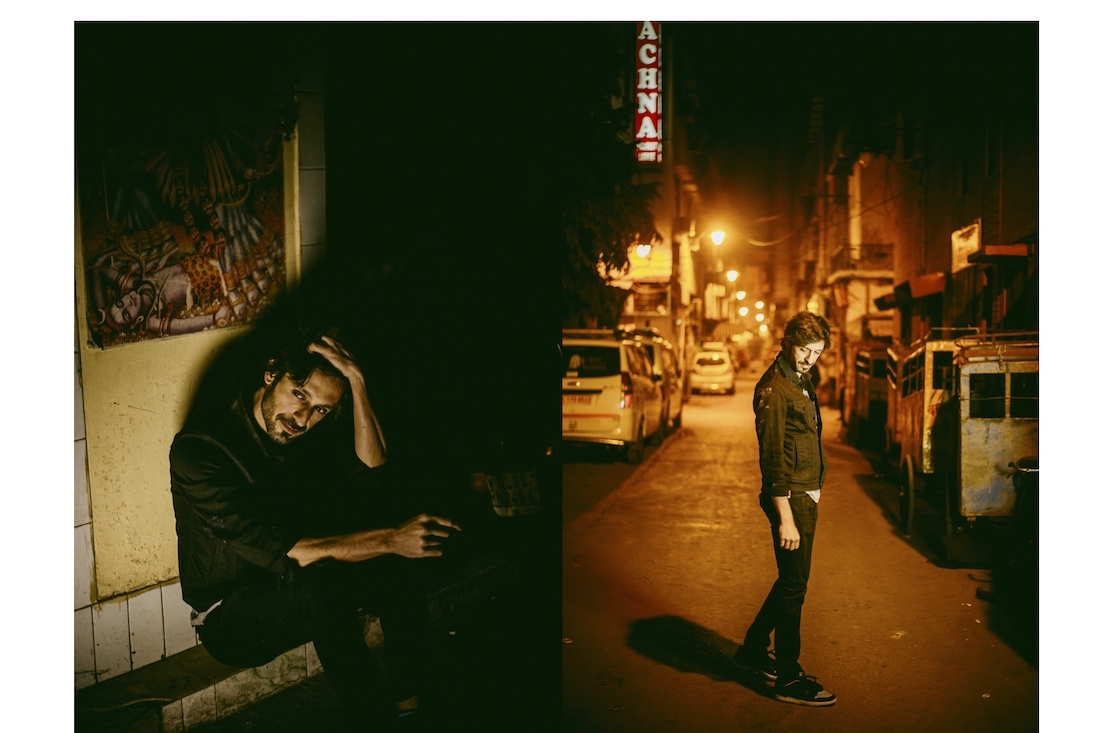
Photography: Zacharie Rabehi

Photography: Zacharie Rabehi
The dynamic music composer and multimedia artist, Sahej Bakshi’s single Closer, with Sterling Reserve Music Project, featuring Sanchal Malhar (lead singer and guitarist of the band Superfuzz), captures the essence of longing.
The song evokes the feeling of wanting to feel closely connected with someone, but not knowing how. It speaks of the yearning for togetherness with a person who feels far away, in spite of their physical proximity. In this audiovisual creation, the singer (Sanchal Malhar) is seen with a silhouetted character, representing the woman of Sanchal’s dreams. Using artfully executed VFX, Sahej unfurls the story of these two characters in a visually novel depiction of the classic two-person love story. The surreal video portrays the various dimensions of relationship between Sanchal Malhar and Sharanya Narayanan, making the audience wonder if she is an individual or a representation of a number of individuals, if she exists or is a figment of his imagination. We spoke with Sahej to know more about his adventure with visuals and the new single.
How did Closer come about?
This project was about bringing the visual story of the Closer to life. There was so much raw emotion to work with from the start, as the song is an immensely personal reflection, based on real life experiences. We knew that the video has to depict a love story, but we wanted to do it in a visually interesting way. This led to the idea of Sharanya performing her roll in a green chroma-key suit, which opened limitless possibilities in the post-production process.
When did you start toying with idea of making visuals?
I consider myself a student for life. I love picking up more skills and putting them to use in a project, such as this one. For the last four to five years, I’ve found myself getting absorbed in the world of visual art and filmmaking, which dovetailed perfectly with my music. Also, working with Sanchal is always such an inspiring experience. He has this ability to create the most unique and memorable compositions, that evoke an immensely immersive scenery. I still remember the day when I heard him singing an unplugged set at a cafe in Delhi. I knew right then that we had to write some music together.
How different was directing a video, as opposed to creating music for it? Can you talk about the challenges you faced?
The process of directing a video couldn't have been more different from creating the music. When I'm composing and writing music, it's mainly a solo activity and I usually have plenty of time to experiment and redo things, if necessary. When directing a video, there's a team helping you achieve your vision, and it's your responsibility to make sure that everyone's on the same page. We also had just one day to shoot everything, which made it all the more crucial to get things right the first time. However, the most challenging part of this video was the post-production process, where I had to replace the green suit with graphics and footage. I was doing that by myself and had a very tight timeline, so it came right down to the wire with this one.
How was it working with Sanchal and what was the starting point for you both while creating Closer?
The starting point for this song was the vocals. I love working with Sanchal because he has this ability to write amazing, instant-earworm vocal lines, which are also fresh and surprising. Once we had recorded the vocals with a simple guitar-backing track, I produced the rest of the song to carry the vocals. It all fell into place organically and felt quite effortless, which is probably my favourite thing about writing music with Sanchal.
Lastly, how do you think the pandemic has affected the artists/musicians and what do you think will be the new normal post this?
Clearly, the biggest impact the pandemic has had on artists and musicians has been the sudden and complete disappearance of live events. Most musicians rely on live events to make a living, and so nearly every full-time artist I know was plunged into crisis. As a result of this situation, most individuals I know have tried out various ways to keep themselves afloat, whether it's through doing branded livestreams or paywall events, and quite a few have turned towards other jobs in the music industry such as teaching, film scoring or music for advertisements. Eventually, I think that gigs and the touring industry will return in a big way. I wouldn't be surprised to see a big boom in concerts and events when it's once again safe to gather in large numbers.